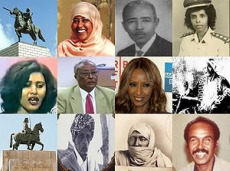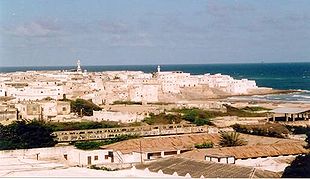Somalia Horn of Africa
People

Somali People
Somalis are entirely Muslims, the majority belonging to the Sunni branch of Islam and the Shafi`i school of Islamic jurisprudence, although a few are also adherents of the Shia Muslim denomination.
Qu'ranic schools (also known as duqsi) remain the basic system of traditional religious instruction in Somalia. They provide Islamic education for children, thereby filling a clear religious and social role in the country. Known as the most stable local, non-formal system of education providing basic religious and moral instruction, their strength rests on community support and their use of locally-made and widely available teaching materials. The Qu'ranic system, which teaches the greatest number of students relative to other educational sub-sectors, is oftentimes the only system accessible to Somalis in nomadic as compared to urban areas. A study from 1993 found, among other things, that "unlike in primary schools where gender disparity is enormous, around 40 per cent of Qur'anic school pupils are girls; but the teaching staffs have minimum or no qualification necessary to ensure intellectual development of children." To address these concerns, the Somali government on its own part subsequently established the Ministry of Endowment and Islamic Affairs, under which Qur'anic education is now regulated.

The whitewashed coral stone city of Merca is an ancient Islamic center in Somalia.
The Somali peoples were never under any unified political structure. Sporadic attempts such as the Gareen dynasty from the Ajuuraan in Central/Southern Somalia in the 1500s (Cassanelli 1992) and the Bartire around Jigjiga, Ethiopia, in the late 1700s were overthrown violently by other clans.The clans, with various genealogical ties, or political or military alliances, provided a broad, loose identity. In the colonial era, the various European powers easily established hegemony, then a dominance over various divisions of the Somali peoples. The British, French and Italian Somalilandís roughly followed geographical areas of clan alliances or federations and actually helped limit clashes between different clans. In 1960 Britain and Italy combined their territories into a unified independent Somalia. The French territory remained separate and gained independence in 1977 as Djibouti.
In addition, the Somali community has produced numerous important Muslim figures over the centuries, many of whom have significantly shaped the course of Islamic learning and practice in the Horn of Africa, the Arabian Peninsula and well beyond.